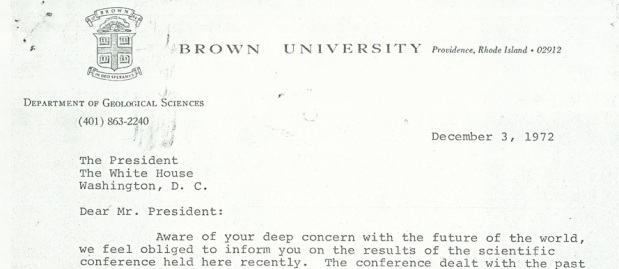________________________________________________________
MADRID 1995: Tipping Point?—The Quest (Part II)—The Last Day (Part II)
________________________________________________________
John Houghton writes of it under the heading: Meetings that Changed the World. He may be right but not only in the way he thinks. Here we consider whether this meeting in Madrid was the moment when climate science gave way under the monumental pressure of politics.

In 2008 John Houghton reminisced on the tense meeting ‘without which there would be no Kyoto Protocol’, and he ‘recalls how science won the day’—at least that’s how Nature called it (vol455, 9Oct08)
When Ben Santer arrived in Madrid in the late autumn of 1995, did he know that this conference would change his life forever?
Undoubtedly ambitious, a rising star in the climate modelling scene, he was doing well at age 40 to be leading the writing of a key chapter in the IPCC Second Assessment Report. In fact, the convener of this IPCC Working Group, John Houghton, had asked him to take it on quite late in the day, only after more established scientists had turned down the offer. Perhaps they had a hunch of what was about to unfold, for it would be Santer’s fate that great forces of history would bear down on the lead author of his chapter at this conference. When he was through with it, when Houghton had accepted the final draft a few days later, climate science would be changed forever. After a long struggle, the levees of science gave way to the overwhelming forces of politics welling up around it, and soon it would be totally and irrevocably engulfed.
The story of Ben Santer’s late changes to Chapter 8 of the Working Group 1 Report is familiar to most sceptical accounts of the climate change controversy (e.g. here & here and a non-sceptical account). However, it is often overshadowed by other landmark events, and so it is usually not put up there in the same league with Hansen‘s sweaty congressional testimony of 1988, with the establishment of the IPCC nor with the Hockey Stick Controversy. Yet, if one looks at the greater controversy in terms of its impact on science, then this conference in Madrid might just surpass them all.
This was the tipping point. This was climate science’s Battle of Hastings, when political exigencies—the enemies of science—broke through the lines and went on to overrun all its institutions. Before Hansen there had always been the rogue scientists hawking some kind of scary scenario to the press or politicians. Indeed, sometimes they listened, and sometime they got all het up about it. Yet the institutions of science held firm. Before the IPCC there had been other politicised scientific institutions—the USA EPA is the prime example (see discussion here). And as for the Hockey Stick, well, by then it was all over, with the Climategate emails confirming that a culture of science-as-advocacy was already endemic in the science informing the IPCC assessments. The travesties of the Third Assessment would be unimaginable without the transformation that had already occurred in the writing of the Second Assessment. Madrid was the tipping point, when everything began to change. Not that everyone noticed it at the time. That the general shift begun at Madrid is much easier to see now with so many years of hindsight. Continue reading →




